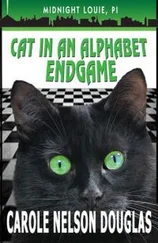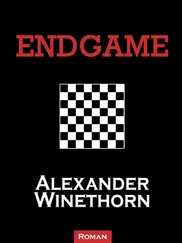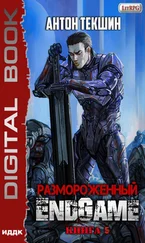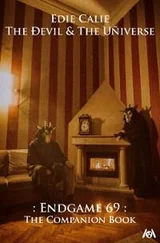About a month later, in July 1992, Kubat, Zita, and two officials of Jugoskandic Bank were in Los Angeles to talk to Bobby about a possible “revenge” match between Fischer and Spassky. The president of the bank, Jezdimir Vasiljevic, had given his executives the authority to offer a purse of $5 million with one stipulation: The match had to commence in three weeks in Yugoslavia. Bobby had no idea, really, who Vasiljevic was. He’d later learn that the banker was one of the most powerful men in Serbia, was involved in currency speculation, was suspected of illegally trafficking arms, and was also supposedly promoting a Ponzi scheme. He was six years younger than Bobby but acted in a fatherly way toward him.
The negotiations went back and forth, but Fischer’s current demands were minor compared to the 132 conditions he’d stipulated in 1975 in order for him to play Karpov. In this proposed Fischer-Spassky match, he asked for the winner to receive $3.35 million, the loser $1.65 million. The match would continue, indefinitely, until one player achieved ten wins, draws not counting. If each player acquired nine wins, the match would be considered a draw, and the prize money would be shared equally, but Fischer would retain his title as undisputed Chess Champion of the World. He insisted that in all publicity and advertising the match be called The World Chess Championship. And last of all, he wanted the new clock that he’d invented to be used in all games.
Bobby also wanted $500,000 to be brought to him in advance— before he ventured from California to Yugoslavia. It was a delicate time. Kubat was afraid that Vasiljevic wouldn’t release the advance payment unless Bobby first signed the contract, which had been translated into English by Zita. In the past, Bobby had often backed out of projects before they began. For the match to become a reality, he had to overcome the impulses of his nature. Just before Kubat was to leave for Belgrade to try to collect the down payment, Bobby amazed everyone: He signed the contract without complaint. In a matter of days, Kubat was back in California with the money, and Bobby made arrangements to abandon his tiny room. Because he would be entering a controversial war zone, there was a possibility he might not soon be coming back to California.
Most of his belongings—some fifty-two stuffed cartons gathered from several venues—were put into storage, and Fischer flew off to Belgrade and, ultimately, Montenegro so that he could inspect the playing site and get himself into shape before the match began. Spassky agreed to everything in the contract, and said from his home outside of Paris: “Fischer pulls me out of oblivion. It is a miracle and I am grateful.”

Sveti Stefan, Yugoslavia, September 1992
Depending on the wind, a faint echo of massive artillery could be heard occasionally across the mountains near Sarajevo seventy miles to the north. The Balkan war was then at its height, during what was called the Yugoslav Era of Disintegration. Eight thousand people had been killed in just two weeks in August in Bosnia and Herzegovina, where the fighting was raging, and millions had fled their homes in the months before. Heavy fighting between forces loyal to the Bosnian government and Serbian irregulars was taking place in Eastern Herzogovina, about fifty miles from the playing site.
However, in Montenegro, on the Adriatic, one of the most beautiful spots in Europe, all was peace, joy, and entertainment on the night of September 1. Torchbearers, dressed in traditional Montenegrin costume—loose-fitting white pants and shirt and a colorful green vest—lined the isthmus leading out to a well-appointed hotel called the Maestral, which had once been a thirteenth-century medieval fort. In the past it had been one of Marshal Tito’s retreats.
The forty-nine-year-old Bobby Fischer was described by a reporter who was covering the match for The New York Times as “an overweight, balding, bearded figure, unmistakably middle-aged, whose expression sometimes seems strikingly vacant.” But Bobby’s untenanted look owed itself not to vapidity but to a certain lack of interest in the world around him. Few things fired his passion. There were his political and religious theories, his vigilant search for dark conspiracies, his joy in languages, his affection for Zita, and of course, his abiding commitment to chess.
He’d just had a haircut and a beard trim, and he was neatly dressed, wearing a tan suit that he’d had custom-made in Belgrade. Surrounded by four sun-glassed bodyguards—two in front and two in the rear—he slowly paraded down the rocky path with Zita, as if he were Caesar and she Cleopatra making an entrance into Rome, smiling and nodding benevolently at their subjects. They were en route to the opening party for the celebrated rematch, and also Zita’s nineteenth birthday—and since they were in medieval surroundings, the entertainment took on a fourteenth-century ambience, with musicians, folk dancers, and acrobats, and fireworks ignited from a boat offshore.
All the while Zita wore a smile on her open face, which was framed by straight light brown hair and dominated by thick, pink-rimmed glasses. Small in stature, she appeared childlike beside Bobby, who, at six feet, two inches, was more than a foot taller.
During the festivities, Bobby sat on a literal throne, next to the sponsor of the match, the shadowy Jezdimir Vasiljevic, who was perched on a duplicate throne: They were two co-kings, one of chess and the other of finance. Vasiljevic had bought the hotel for $500 million, so the $5 million that he fronted for the prize fund was not a particular burden for him. After Bobby signed the contract to play, and it was returned to Vasiljevic, the Serbian screamed: “I just made $5 million!” since he’d been ready to negotiate with Fischer and raise the purse to $10 million if necessary. But he was careful to make sure that Bobby never knew how much more he might have won.
Before play began, there were mixed emotions, conflicting speculations, and assorted reactions throughout the chess world concerning the match. In an editorial in The New York Times , grandmaster Robert Byrne summarized the theories and conjectures: “At one pole, there is elation over Mr. Fischer’s return from two decades of obscurity. He is, after all, the giant of American chess, and few grandmasters can say they haven’t been influenced by his ideas, or awed by the brilliance of his games. If he can still play at top form, if he goes on to play further matches, if he challenges for the championship—if, if, if—then some of them [the chess public] look for a new chess craze to sweep the country, perhaps the world, as it did when Mr. Fischer defeated Mr. Spassky for the championship two decades ago.” But more important than the question of whether Bobby would inspire another “Fischer boom” was the question of whether his immense and innate talent could find its release on the chessboard. There was no telling what his strength would be after such a long hiatus; even Bobby couldn’t be sure that he’d held on to his former insight and brilliance. Playing—and winning—a rematch with Spassky would, to some extent, prove that Bobby’s prowess was intact. However, Spassky, at age fifty-five, had sunk to about one hundredth on the FIDE rating list, so many chess players doubted that the match would be a true gauge of whether Bobby deserved to still be called the strongest player in the world. Bobby asked Gligoric (“Gliga”) to play a secret ten-game training match to get into shape. Bobby won the match, but only three games have been made public: Bobby won one, and there were two draws.
Garry Kasparov, the reigning champion, was one who discounted the match’s significance. When asked at the time whether he’d like to engage Fischer in a match for the official championship, Kasparov snapped, “Absolutely not. I don’t believe Fischer is strong enough now. Boris and Bobby are retirees, not threats to me.” The Daily Telegraph of London offered an atypical reaction to the impending match: “Imagine that you can hear the end of Schubert’s ‘Unfinished Symphony’ or Beethoven’s 10th, or see the missing arm of Michelangelo’s Venus . These are the feelings that Fischer’s return brings to the world’s chessplayers.”
Читать дальше
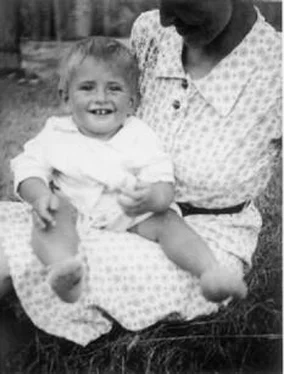


![Антон Текшин - EndGame [СИ]](/books/394477/anton-tekshin-endgame-si-thumb.webp)
